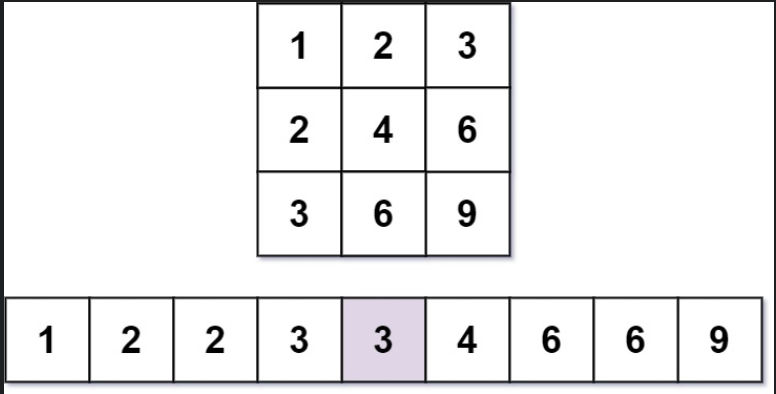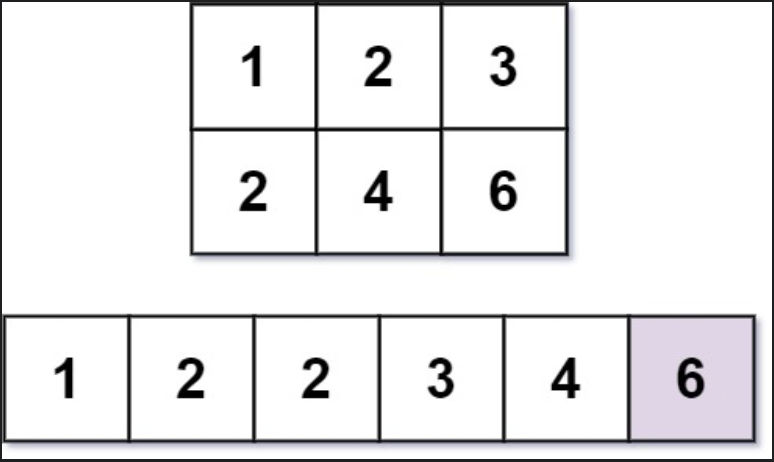Problem Statement:
Nearly everyone has used the Multiplication Table. The multiplication table of size m x n is an integer matrix matwhere mat[i][j] == i * j (1-indexed).
Given three integers m, n, and k, return the kth smallest element in the m x n multiplication table.
Example 1:
Open: Screenshot 2024-06-19 at 5.15.23 PM.png

Input: m = 3, n = 3, k = 5 Output: 3 Explanation: The 5th smallest number is 3.
Example 2:
Open: Screenshot 2024-06-19 at 5.15.50 PM.png

Input: m = 2, n = 3, k = 6 Output: 6 Explanation: The 6th smallest number is 6.
Constraints:
1 <= m, n <= 3 * 10^41 <= k <= m * n
Solution:

class Solution {
private boolean hasAtLeastKSmallerNumbers(int m, int n, int k, int num) {
int count = 0; // Counter for the numbers less than or equal to 'num'.
// Iterate over each row to count how many numbers in the multiplication table are <= 'num'.
for (int row = 1; row <= m; row++) {
/* Count the numbers in this row that are <= 'num'.
(num / row) gives the highest column index with value <= 'num' for the current row.
We take the minimum with 'n' to handle cases where num / row > n.
*/
count += Math.min(num / row, n);
}
// Check if we have counted at least 'k' numbers.
return count >= k;
}
public int findKthSmallestNumber(int m, int n, int k) {
//Define the search space
int left = 1; // Minimum possible value in the table.
int right = m * n; // Maximum possible value in the table.
// Perform binary search to find the k-th smallest number.
while (left < right) {
int mid = left + (right - left) / 2;
// Check if 'mid' can be the k-th smallest number.
if (hasAtLeastKSmallerNumbers(m, n, k, mid)) {
right = mid; // If yes, look for smaller values.
} else {
left = mid + 1; // Otherwise, look for larger values.
}
}
// The left boundary now points to the k-th smallest number.
return left;
}
}